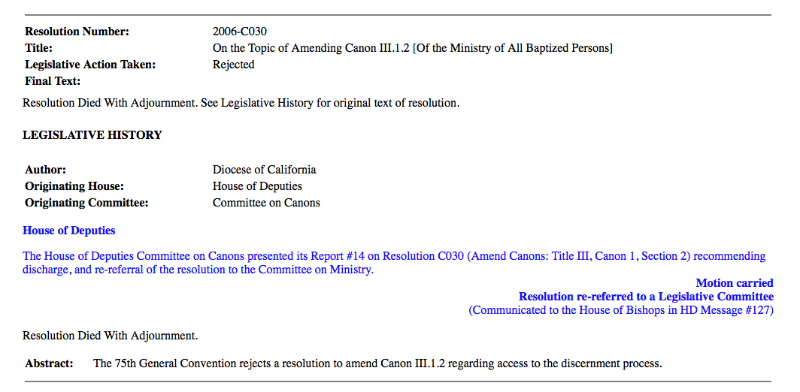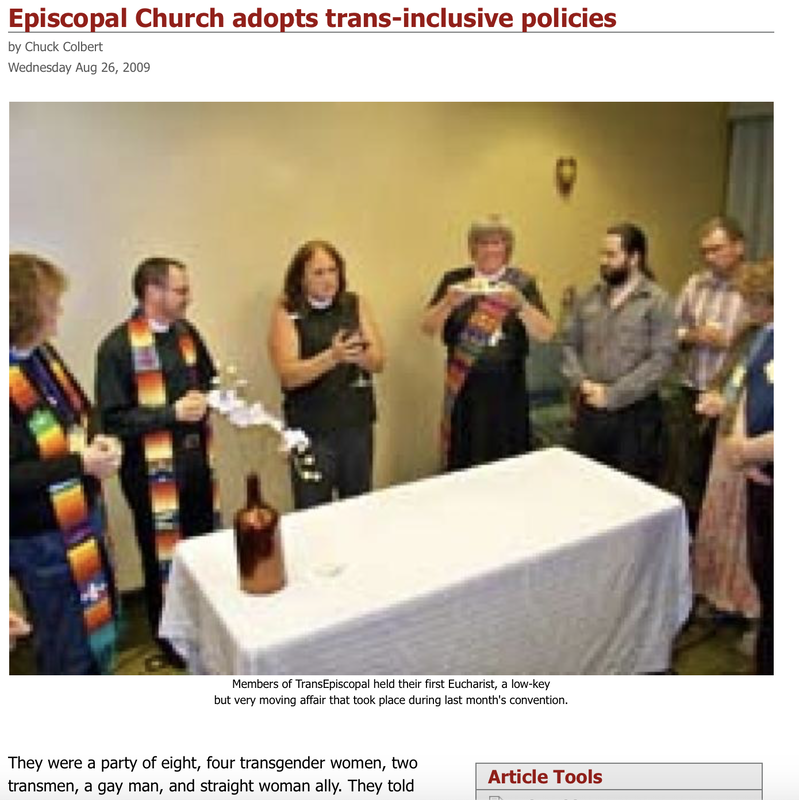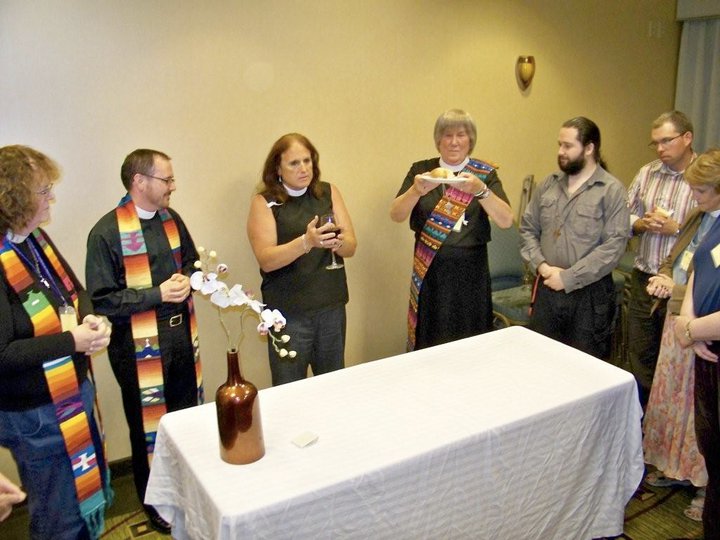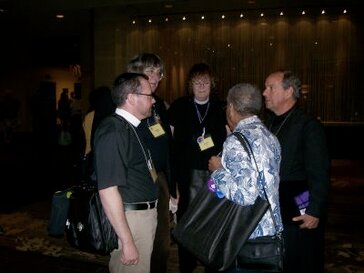
TransEpiscopal looks forward to being at the 78th triennial General Convention of The Episcopal Church in Salt Lake City June 25-July 3. There, as in the past several years, we aim to collaborate with several groups and individuals to continue being agents of transformation in and through the Episcopal Church, that trans folks – and indeed all people-- might be empowered in and by this Church to be the people God is calling us to become. Already we have come a very long way, even as significant work remains to be done.
As we turn toward Salt Lake City, we wanted to take a moment—a few posts—to recall the history of TransEpiscopal’s legislative advocacy at GC.
TransEpiscopal’s first such effort was about a year after our founding, in 2006 at the 75th Convention in Columbus, Ohio. This was an especially intense, emotional Convention. The House of Bishops elected The Episcopal Church’s first ever woman Presiding Bishop, Katharine Jefferts Schori. The Convention rejected a resolution that intended to place a moratorium on openly gay bishops, three years after Bishop Gene Robinson had been consecrated in New Hampshire (A161 which can be found here). And then, not long after that rejection, the Convention passed a slightly different version of that resolution (B033) which essentially sought to do the same thing with vaguer language (which was later essentially overturned at the GC of 2009). The GC of 2006 was incredibly difficult, especially for LGBT people.
Amid all this, there wasn’t much awareness of or advocacy for trans people in The Episcopal Church or, really, much specific language to help name our experiences and identities. Take, for instance, the difficulty of even locating a digital record of the one resolution touching on trans people in the life of the church that did, in fact, come before the 2006 General Convention: resolution C030. This resolution, which originated in the Diocese of California, sought to do what the 77th General Convention eventually did in 2012: to add “gender identity and expression” to the nondiscrimination language in Canon III.1.2, on access to the discernment process toward ordained ministry. You can find its legislative record here. Here is an image of it as well.
Once recognized by the General Convention, and given a number (C030), the resolution got referred to the Committee on Canons. When that committee held a hearing on this and its other resolutions, TransEpiscopal’s founding member Donna Cartwright testified in its support. Donna had driven on her own to General Convention and was a lone voice speaking out in support of this resolution. As the legislative history reports, the committee ultimately “presented its Report #14 on Resolution C030 (Amend Canons: Title III, Canon 1, Section 2) recommending discharge, and re-referral of the resolution to the Committee on Ministry.” This decision was communicated to the House of Bishops. But this sentence really tells the story: “Resolution Died With Adjournment.” Or better, as the abstract of C030 puts it, “The 75th General Convention rejects a resolution to amend Canon III.1.2 regarding access to the discernment process.”
The funny thing about this is that for years several of us have been trying to locate a digital record—or, really, any official record—of this experience that Donna Cartwright had shared with us as it was happening. It felt important, a kind of signpost saying we were there. But none of the key terms – words like “transgender” or “gender identity” or even just “gender” – were generating anything in the digital archives. What ultimately did lead to its location, finally, was an advanced search targeting the year 2006 and typing the word “rejected” under “Action taken.” Among the sixty-six other rejected resolutions, C030 was easy to pick out. In other posts, narrating other encounters at later GCs, we have commented on the importance of naming, of specificity. Without that naming, even as language can still so often fall short, it can be easy to lose traces of our histories, to forget aspects of our journey.
But, in the person of Donna, we were indeed there, and we knew we needed to return in greater numbers. And so, in 2009, we did….




 RSS Feed
RSS Feed